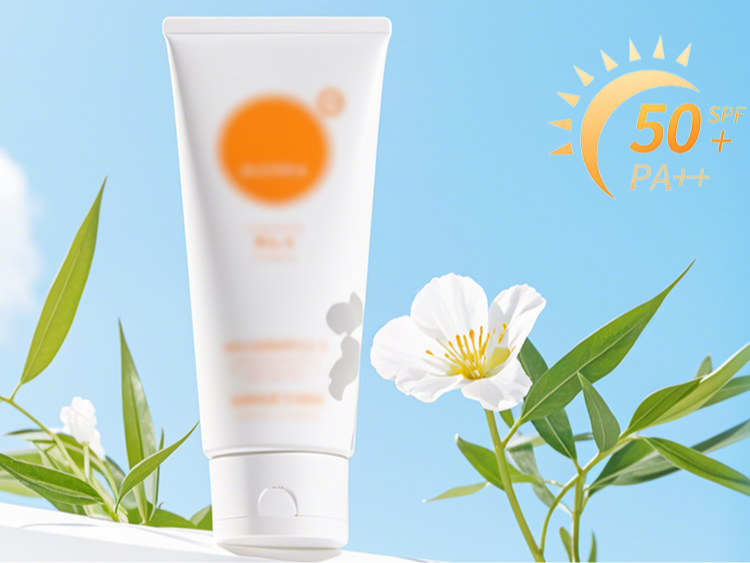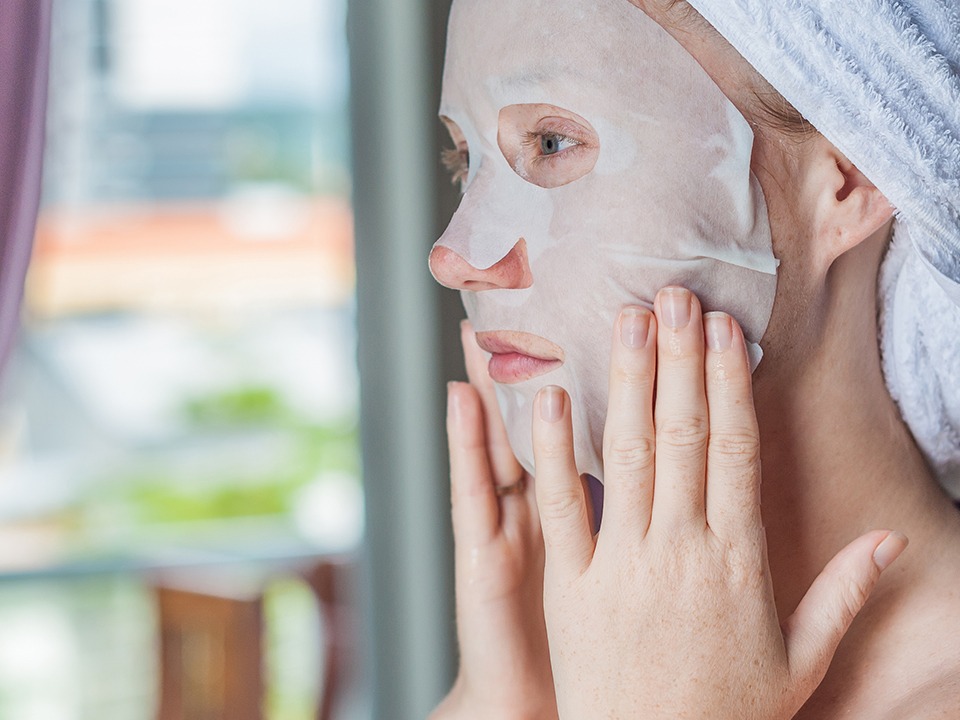As the days grow longer and the temperature gradually warms up, many people with sensitive skin start to worry again—what skincare precautions should be taken during this seasonal transition?

Seasonal changes are one of the main triggers of allergic reactions. Combined with factors like fluctuating air humidity, wind, and pollen, these reactions manifest on the skin as mild symptoms such as itching, flaking, and small rashes, or more severe issues like redness, swelling, and even chronic skin conditions. We’ve listed some common skincare concerns during seasonal transitions, hoping to help your skin stay smooth and comfortable through the changes!
TIPS:The following suggestions are only effective for mild skin sensitivity. For severe skin problems, you should immediately make an appointment at a dermatology department of a regular hospital!
1.How to choose skincare products?
In addition to selecting products based on skin type, it's also important to avoid ingredients that are prone to cause sensitivity when changing seasons.
The ingredients in skincare products are complex. If you already know you're sensitive to a certain ingredient, simply avoid it. However, you often don't know exactly which ingredients may trigger sensitivity. Therefore, try to choose products without fragrances and with fewer types of preservatives.
Fragrances and preservatives are the main factors in skincare products that cause sensitivity issues. Additionally, fragrances aren't limited to those labeled as "fragrance" or "perfume" in the ingredient list. Many volatile essential oil components also serve as fragrances and can cause sensitivity, such as peppermint oil, citronellol, bourbon geranium essential oil, rosemary essential oil, jasmine extract, etc.
The EU has identified 26 fragrance ingredients that are prone to cause allergies, and these are also labeled on cosmetic products in China (especially perfumes, which are regulated as cosmetics domestically). You can check the products you currently have against this list.
| 26 allergenic daily-use fragrances are listed in the table below: | ||
| Serial number | IFRA NAME | CAS NUMBER |
| 1 | Methyl ionone,mixed isomers | 127-51-5 |
| 2 | alpha-Amyl cimamic alcohol | 122-40-7 |
| 3 | alpha-Amyl cinnamic aldelyde | 101-85-9 |
| 4 | Anisyl alcohol | 105-13-5 |
| 5 | Berzyl alcohol | 100-51-6 |
| 6 | Berzyl benzoate | 120-51-4 |
| 7 | Berzyl cinnamate | 103-41-3 |
| 8 | Berzyl salicylate | 118-58-1 |
| 9 | CinQmic aldelyde | 104-55-2 |
| 10 | Cimnamic alcohol | 104-54-1 |
| 11 | Citral | 5392-40-5 |
| 12 | Citronellol | 106-22-9 |
| 13 | Coumarin | 91-64-5 |
| 14 | Eugenol | 97-53-0 |
| 15 | Tree mOss Extract | 90028-67-4 |
| 16 | Oak mosS Extract | 90028-68-5 |
| 17 | Farnesol | 4602-84-0 |
| 18 | Geraniol | 106-24-1 |
| 19 | alpha-Henyl cinnamic aidelyde | 101-86-0 |
| 20 | Hycroxycitronellal | 107-75-5 |
| 21 | Isoeugenol | 97-54-1 |
| 22 |
p-tert-Butyl-alpha-metiy/nydrocina mic aldehyde (BMHCA) |
80-54-6 |
| 23 | d-Limonene | 5989-27-5 |
| 24 | Linalool | 78-70-6 |
| 25 |
3-(4-Hydroxy-4-methyipenpyl)-3-cycl ohexene-I-carboxaldelyde (HMPCC) |
31906-04-4 |
| 26 | Methyl heptin carbonate | 111-12-6 |
2.Can we still use strong medicine?
Certain active ingredients, such as exfoliating alpha hydroxy acids (AHAs), salicylic acid, and retinol, can be beneficial for the skin but often cause irritation. During seasonal transitions, when you need to address acne, remove dead skin cells, and improve fine lines, how can you manage the potential irritation from these active ingredients? A recommended approach is to use them alongside moisturizing products or reduce their frequency to 2-3 times per week while also moderating the amount applied.
3.Is it time to start using ?
Sun protection is a concern throughout the year, especially for those who are sensitive to ultraviolet rays. Failing to take proper protective measures can even lead to sun-induced dermatitis.

Of course, some chemical sunscreens may also cause allergies. Therefore, it is recommended to choose products with physical blockers (titanium dioxide, zinc oxide) if they are tolerable to the skin, or opt for alternatives like wearing hats or using umbrellas for shade.
4. What to do if you're already experiencing allergies
If you suspect it's caused by skincare products—for example, if sensitivity symptoms began after switching to new products—then of course, discontinue use.
If the peeling, itching, or skin damage is due to other allergic reactions, you can continue using suitable skincare products. Products containing ingredients similar to sebum (such as cholesterol, fatty acids, and ceramides) can help repair damaged skin. For those already experiencing sensitivity, it's best to avoid potentially irritating active ingredients (aside from the strong actives mentioned earlier, this also includes high-concentration vitamin C above 10% and skin-brightening ingredients like resorcinol derivatives).
5. Do you need to use a face mask?
Many people enjoy using sheet masks or soaking compressed paper masks in water to apply on their faces. Some masks do provide instant soothing effects for certain skin sensitivities (such as redness and warmth); during the short time of application, masks can also increase the moisture content of the stratum corneum and alleviate skin dryness. However, if moisturizing products are not used afterward, the moisture will still be lost.

The moisture content of the stratum corneum is generally around 30%, and levels that are too high or too low can affect the skin's barrier function. Therefore, if you enjoy using masks, remember to limit the application time, avoid excessive frequency, and always follow up with moisturizing products.
6.What else should you be mindful of?
Try to avoid using soap, bar soap, or any cleansing products containing soap bases (glycerin + stearic acid/palmitic acid/lauric acid/myristic acid + sodium hydroxide/potassium hydroxide). Soaps are highly effective at removing sebum, which can lead to skin dryness.
Additionally, avoid using overly hot water to cleanse your skin, and limit the duration of showers to reduce potential skin irritation. Furthermore, sometimes chloride ions in tap water can also be a culprit for skin sensitivity. To address this, boiling the water can remove some of these ions, or for those who don’t mind the extra effort, installing a water purification system is another option.























